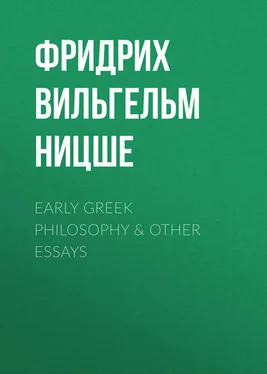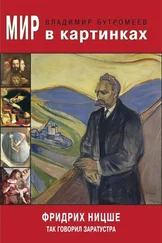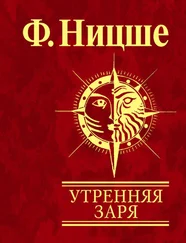Фридрих Ницше - Early Greek Philosophy & Other Essays
Здесь есть возможность читать онлайн «Фридрих Ницше - Early Greek Philosophy & Other Essays» — ознакомительный отрывок электронной книги совершенно бесплатно, а после прочтения отрывка купить полную версию. В некоторых случаях можно слушать аудио, скачать через торрент в формате fb2 и присутствует краткое содержание. Жанр: Философия, literature_19, foreign_antique, foreign_prose, на английском языке. Описание произведения, (предисловие) а так же отзывы посетителей доступны на портале библиотеки ЛибКат.
- Название:Early Greek Philosophy & Other Essays
- Автор:
- Жанр:
- Год:неизвестен
- ISBN:нет данных
- Рейтинг книги:3 / 5. Голосов: 1
-
Избранное:Добавить в избранное
- Отзывы:
-
Ваша оценка:
- 60
- 1
- 2
- 3
- 4
- 5
Early Greek Philosophy & Other Essays: краткое содержание, описание и аннотация
Предлагаем к чтению аннотацию, описание, краткое содержание или предисловие (зависит от того, что написал сам автор книги «Early Greek Philosophy & Other Essays»). Если вы не нашли необходимую информацию о книге — напишите в комментариях, мы постараемся отыскать её.
Early Greek Philosophy & Other Essays — читать онлайн ознакомительный отрывок
Ниже представлен текст книги, разбитый по страницам. Система сохранения места последней прочитанной страницы, позволяет с удобством читать онлайн бесплатно книгу «Early Greek Philosophy & Other Essays», без необходимости каждый раз заново искать на чём Вы остановились. Поставьте закладку, и сможете в любой момент перейти на страницу, на которой закончили чтение.
Интервал:
Закладка:
He who cannot reflect upon the position of affairs in Society without melancholy, who has learnt to conceive of it as the continual painful birth of those privileged Culture-men, in whose service everything else must be devoured – he will no longer be deceived by that false glamour, which the moderns have spread over the origin and meaning of the State. For what can the State mean to us, if not the means by which that social-process described just now is to be fused and to be guaranteed in its unimpeded continuance? Be the sociable instinct in individual man as strong as it may, it is only the iron clamp of the State that constrains the large masses upon one another in such a fashion that a chemical decomposition of Society, with its pyramid-like super-structure, is bound to take place. Whence however originates this sudden power of the State, whose aim lies much beyond the insight and beyond the egoism of the individual? How did the slave, the blind mole of Culture, originate ? The Greeks in their instinct relating to the law of nations have betrayed it to us, in an instinct, which even in the ripest fulness of their civilisation and humanity never ceased to utter as out of a brazen mouth such words as: "to the victor belongs the vanquished, with wife and child, life and property. Power gives the first right and there is no right, which at bottom is not presumption, usurpation, violence."
Here again we see with what pitiless inflexibility Nature, in order to arrive at Society, forges for herself the cruel tool of the State – namely, that conqueror with the iron hand, who is nothing else than the objectivation of the instinct indicated. By the indefinable greatness and power of such conquerors the spectator feels, that they are only the means of an intention manifesting itself through them and yet hiding itself from them. The weaker forces attach themselves to them with such mysterious speed, and transform themselves so wonderfully, in the sudden swelling of that violent avalanche, under the charm of that creative kernel, into an affinity hitherto not existing, that it seems as if a magic will were emanating from them.
Now when we see how little the vanquished trouble themselves after a short time about the horrible origin of the State, so that history informs us of no class of events worse than the origins of those sudden, violent, bloody and, at least in one point, inexplicable usurpations: when hearts involuntarily go out towards the magic of the growing State with the presentiment of an invisible deep purpose, where the calculating intellect is enabled to see an addition of forces only; when now the State is even contemplated with fervour as the goal and ultimate aim of the sacrifices and duties of the individual: then out of all that speaks the enormous necessity of the State, without which Nature might not succeed in coming, through Society, to her deliverance in semblance, in the mirror of the genius. What discernments does the instinctive pleasure in the State not overcome! One would indeed feel inclined to think that a man who looks into the origin of the State will henceforth seek his salvation at an awful distance from it; and where can one not see the monuments of its origin – devastated lands, destroyed cities, brutalised men, devouring hatred of nations! The State, of ignominiously low birth, for the majority of men a continually flowing source of hardship, at frequently recurring periods the consuming torch of mankind – and yet a word, at which we forget ourselves, a battle cry, which has filled men with enthusiasm for innumerable really heroic deeds, perhaps the highest and most venerable object for the blind and egoistic multitude which only in the tremendous moments of State-life has the strange expression of greatness on its face!
We have, however, to consider the Greeks, with regard to the unique sun-height of their art, as the "political men in themselves," and certainly history knows of no second instance of such an awful unchaining of the political passion, such an unconditional immolation of all other interests in the service of this State-instinct; at the best one might distinguish the men of the Renascence in Italy with a similar title for like reasons and by way of comparison. So overloaded is that passion among the Greeks that it begins ever anew to rage against itself and to strike its teeth into its own flesh. This bloody jealousy of city against city, of party against party, this murderous greed of those little wars, the tiger-like triumph over the corpse of the slain enemy, in short, the incessant renewal of those Trojan scenes of struggle and horror, in the spectacle of which, as a genuine Hellene, Homer stands before us absorbed with delight – whither does this naïve barbarism of the Greek State point? What is its excuse before the tribunal of eternal justice? Proud and calm, the State steps before this tribunal and by the hand it leads the flower of blossoming womanhood: Greek society. For this Helena the State waged those wars – and what grey-bearded judge could here condemn? —
Under this mysterious connection, which we here divine between State and art, political greed and artistic creation, battlefield and work of art, we understand by the State, as already remarked, only the cramp-iron, which compels the Social process; whereas without the State, in the natural bellum omnium contra omnes Society cannot strike root at all on a larger scale and beyond the reach of the family. Now, after States have been established almost everywhere, that bent of the bellum omnium contra omnes concentrates itself from time to time into a terrible gathering of war-clouds and discharges itself as it were in rare but so much the more violent shocks and lightning flashes. But in consequence of the effect of that bellum, – an effect which is turned inwards and compressed, – Society is given time during the intervals to germinate and burst into leaf, in order, as soon as warmer days come, to let the shining blossoms of genius sprout forth.
In face of the political world of the Hellenes, I will not hide those phenomena of the present in which I believe I discern dangerous atrophies of the political sphere equally critical for art and society. If there should exist men, who as it were through birth are placed outside the national-and State-instincts, who consequently have to esteem the State only in so far as they conceive that it coincides with their own interest, then such men will necessarily imagine as the ultimate political aim the most undisturbed collateral existence of great political communities possible, which they might be permitted to pursue their own purposes without restriction. With this idea in their heads they will promote that policy which will offer the greatest security to these purposes; whereas it is unthinkable, that they, against their intentions, guided perhaps by an unconscious instinct, should sacrifice themselves for the State-tendency, unthinkable because they lack that very instinct. All other citizens of the State are in the dark about what Nature intends with her State-instinct within them, and they follow blindly; only those who stand outside this instinct know what they want from the State and what the State is to grant them. Therefore it is almost unavoidable that such men should gain great influence in the State because they are allowed to consider it as a means, whereas all the others under the sway of those unconscious purposes of the State are themselves only means for the fulfilment of the State-purpose. In order now to attain, through the medium of the State, the highest furtherance of their selfish aims, it is above all necessary, that the State be wholly freed from those awfully incalculable war-convulsions so that it may be used rationally; and thereby they strive with all their might for a condition of things in which war is an impossibility. For that purpose the thing to do is first to curtail and to enfeeble the political separatisms and factions and through the establishment of large equipoised State-bodies and the mutual safeguarding of them to make the successful result of an aggressive war and consequently war itself the greatest improbability; as on the other hand they will endeavour to wrest the question of war and peace from the decision of individual lords, in order to be able rather to appeal to the egoism of the masses or their representatives; for which purpose they again need slowly to dissolve the monarchic instincts of the nations. This purpose they attain best through the most general promulgation of the liberal optimistic view of the world, which has its roots in the doctrines of French Rationalism and the French Revolution, i. e., in a wholly un-Germanic, genuinely neo-Latin shallow and unmetaphysical philosophy. I cannot help seeing in the prevailing international movements of the present day, and the simultaneous promulgation of universal suffrage, the effects of the fear of war above everything else, yea I behold behind these movements, those truly international homeless money-hermits, as the really alarmed, who, with their natural lack of the State-instinct, have learnt to abuse politics as a means of the Exchange, and State and Society as an apparatus for their own enrichment. Against the deviation of the State-tendency into a money-tendency, to be feared from this side, the only remedy is war and once again war, in the emotions of which this at least becomes obvious, that the State is not founded upon the fear of the war-demon, as a protective institution for egoistic individuals, but in love to fatherland and prince, it produces an ethical impulse, indicative of a much higher destiny. If I therefore designate as a dangerous and characteristic sign of the present political situation the application of revolutionary thought in the service of a selfish State-less money-aristocracy, if at the same time I conceive of the enormous dissemination of liberal optimism as the result of modern financial affairs fallen into strange hands, and if I imagine all evils of social conditions together with the necessary decay of the arts to have either germinated from that root or grown together with it, one will have to pardon my occasionally chanting a Pæan on war. Horribly clangs its silvery bow; and although it comes along like the night, war is nevertheless Apollo, the true divinity for consecrating and purifying the State. First of all, however, as is said in the beginning of the "Iliad," he lets fly his arrow on the mules and dogs. Then he strikes the men themselves, and everywhere pyres break into flames. Be it then pronounced that war is just as much a necessity for the State as the slave is for society, and who can avoid this verdict if he honestly asks himself about the causes of the never-equalled Greek art-perfection?
Читать дальшеИнтервал:
Закладка:
Похожие книги на «Early Greek Philosophy & Other Essays»
Представляем Вашему вниманию похожие книги на «Early Greek Philosophy & Other Essays» списком для выбора. Мы отобрали схожую по названию и смыслу литературу в надежде предоставить читателям больше вариантов отыскать новые, интересные, ещё непрочитанные произведения.
Обсуждение, отзывы о книге «Early Greek Philosophy & Other Essays» и просто собственные мнения читателей. Оставьте ваши комментарии, напишите, что Вы думаете о произведении, его смысле или главных героях. Укажите что конкретно понравилось, а что нет, и почему Вы так считаете.


![Фридрих Ницше - Песни Заратустры [сборник]](/books/28216/fridrih-nicshe-pesni-zaratustry-sbornik-thumb.webp)








